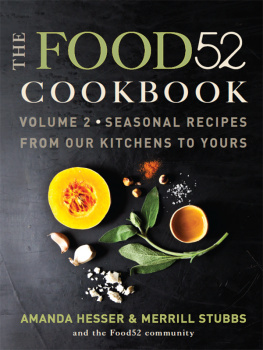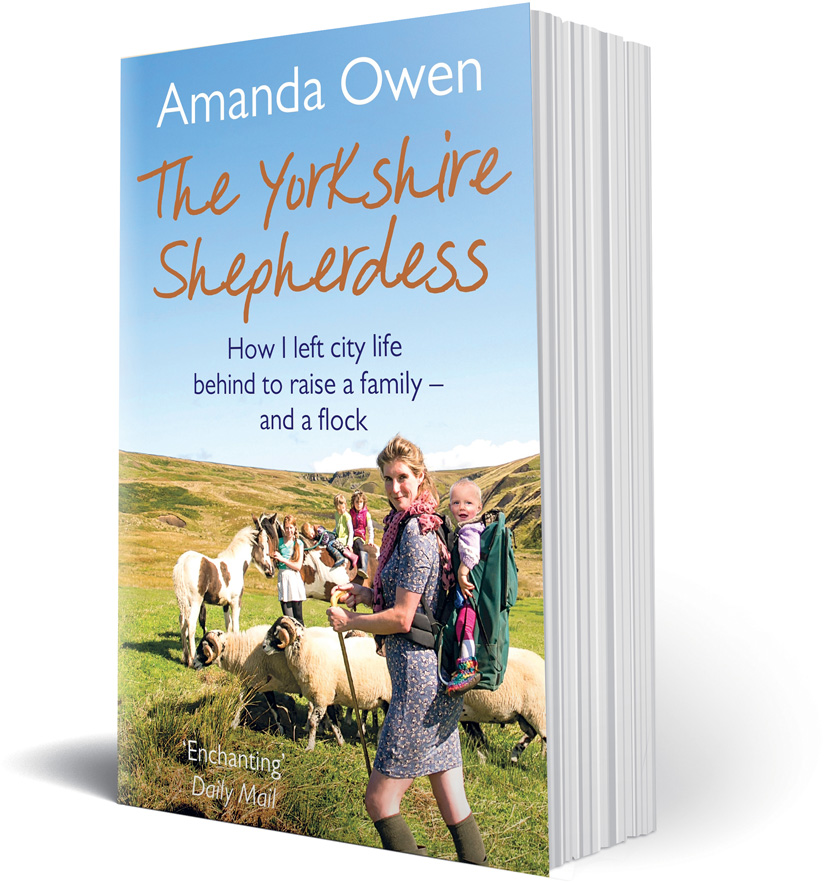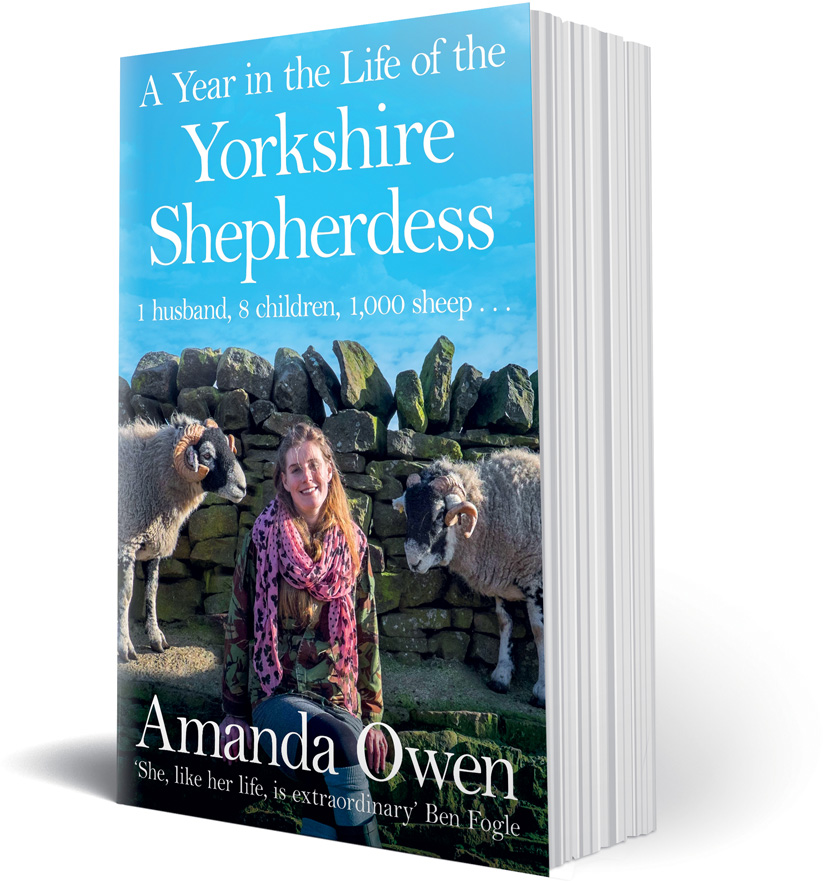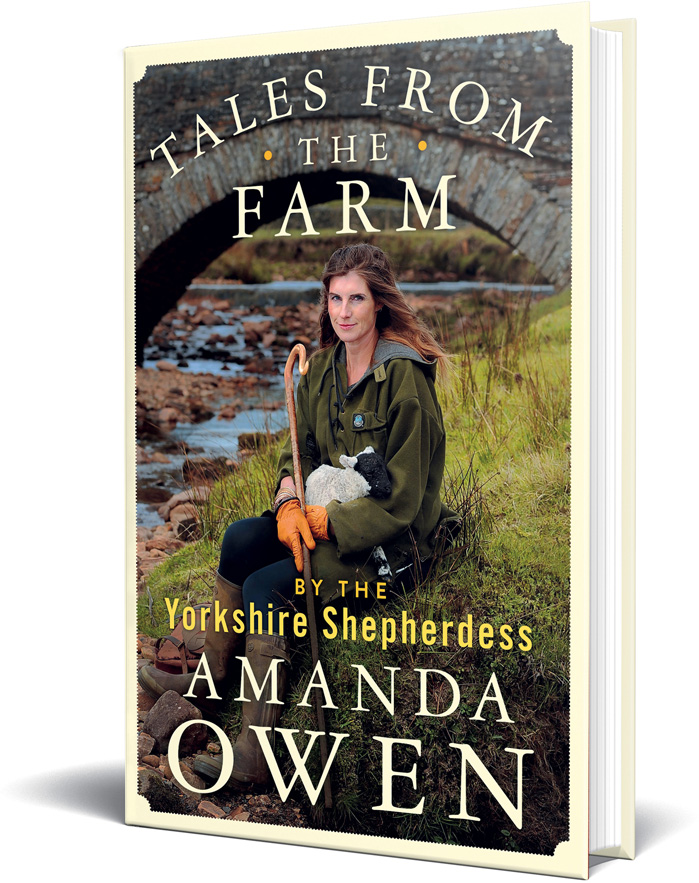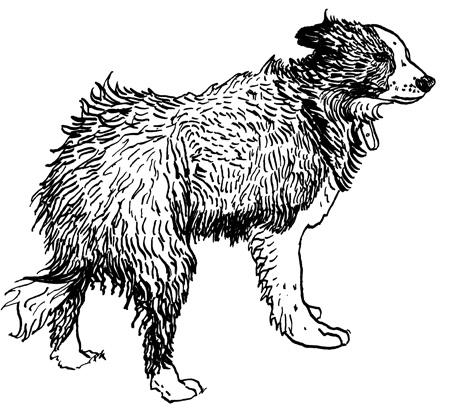There are so many people that deserve a mention; first and foremost my family, who of course feature heavily in this book indeed, if I am in the picture then it is one of the children behind the lens.
Huge thanks to Jo and Jonathan Cantello, to Emma Donnan, and to everyone at Pan Macmillan, especially my publisher Ingrid Connell for giving me the opportunity to write this book, and for her absolute unerring patience at dealing with my hapless timekeeping. Thanks to Rebecca Needes, Lindsay Nash, Simon Rhodes, Holly Sheldrake and Sin Chilvers. And thanks to Heather Bowen for the lovely page design, and Jill Weatherburn for turning my notes into delicious recipes with proper measurements! To everyone else who worked tirelessly behind the scenes to help me along and support me, you know who you are.
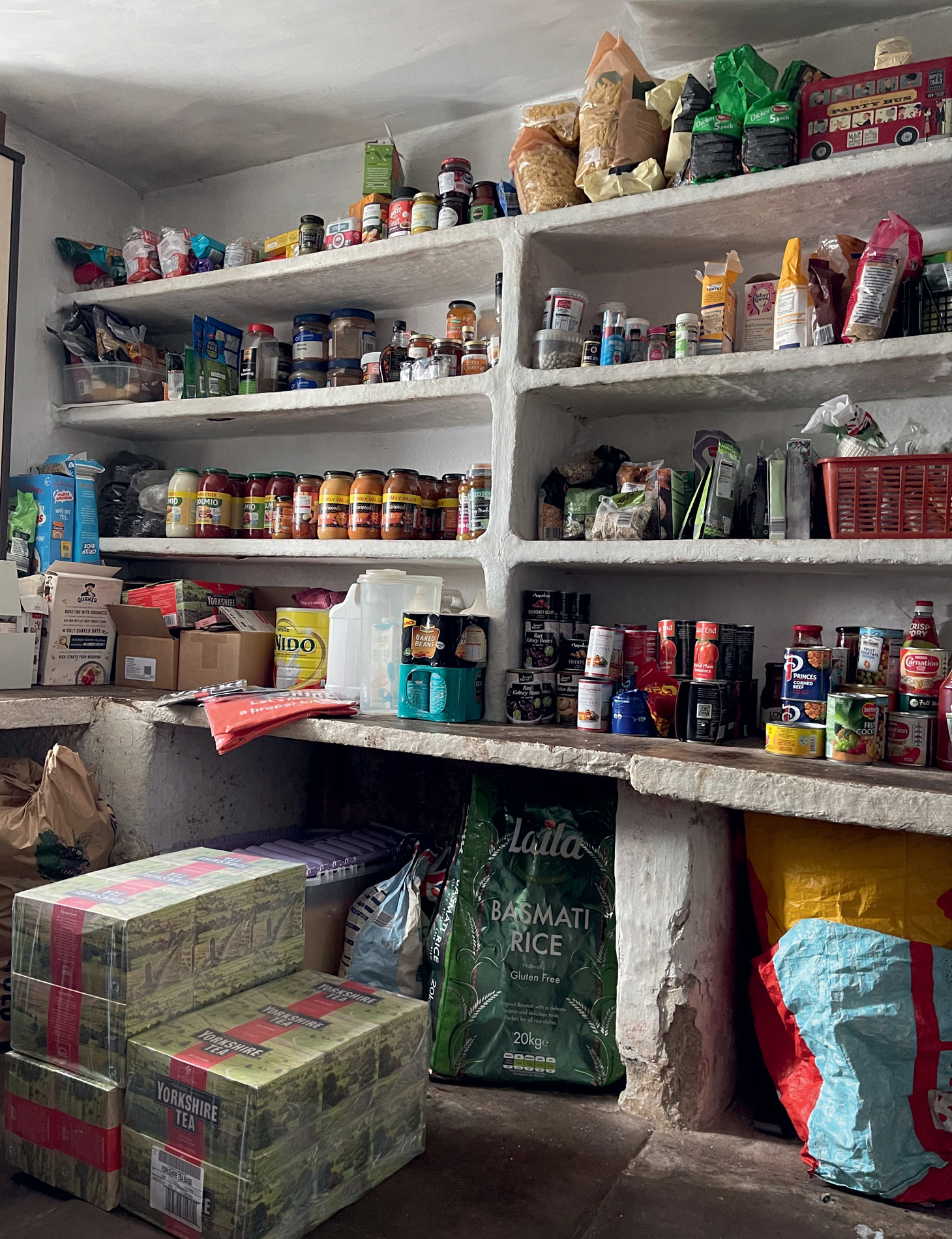
A fully stocked dairy is a must for the winter months.
I d challenge anyone to find a more dramatically spectacular place to be in January than a snowbound Ravenseat. Granted, a kinder, simpler home would be easier, but for wild dynamic beauty, Ravenseat has to win, hands down. The farmstead sits neatly and squarely in a small valley, cosily hemmed in and dominated by the moors that surround her. With the farm comes a well-documented history going back centuries, the human presence visible in the walls and buildings. Much older, still, are the fossils still visible in the sandstone cobbles dug from the nearby quarry, and the water-worn swirls on flagstones hauled from the beck.
It is pretty much a certainty that all will be covered in a thick blanket of snow, drifts gathering beside the walls, delicate and pure windblown sculptures that glisten in the rare moments that a weak winter sunshine breaks through the heavy leaden skies so common at this time of year. Blizzarding snow and ice mean that we may well be cut off for at least part of the month, but we know the drill by now, and make sure we are well prepared. I fill the dairy with staples sacks of rice, potatoes and pasta, big bags of sugar and flour and plenty of tins. It is well within the power of every farmer to furnish the table through all seasons with wholesome dishes from the dairy, if preparations have been made.
I drive thirty miles to Catterick Garrison where I can buy in bulk, partly in a bid to maximize efficiency by keeping trips to a minimum, and partly as it makes financial sense. With a family to feed, and a sizeable one at that eleven people round the table, all with healthy appetites keeping hunger pangs at bay is no easy feat in winter. Normally bulk-buying poses no issue, but in 2020, when the pandemic lockdown was introduced, it became far more difficult to stock up in the way in which I was accustomed. Furtively loading up a trolley, I would constantly be looking over my shoulder, aware that to my fellow shoppers it would seem as if I was greedily hoarding food.
I get potatoes by the sackful from the local agricultural suppliers, who stock them alongside the animal feed. The price varies depending on the season and availability, but even at their costliest, 12 for a twenty-five-kilo sack is still a bargain. They are unwashed, encrusted with a little soil so they store well without rotting or sprouting. They will keep for weeks if left in a cool, dark place. How we store food is so very important waste is to be avoided at all costs. It is undoubtedly difficult to incorporate much in the way of seasonal fruit into our diets. Other than cooking apples, frozen autumn berries and stewed rhubarb theres little to be had. But that is how it should be; periods of plenty (a glut, if you like) and times of scarcity. An awareness of seasonality is of huge importance, and often overlooked in a world where everything is available at all times. There is a time for everything, and it comes as no surprise that eating what is in season is easier on the pocket, and naturally more nutritious and flavoursome.
While I leave everyone to sort their own food for dinner time, around midday, everyone pulls up a chair and gathers around the kitchen table for tea. Talk will inevitably be about the animals, and the jobs that were done that day. We make vague plans for the following day, working out logistics to maximize efficiency and tackle problems. Our enjoyment is as much about the conversation as it is the meal itself, but it is during these coldest of days that everyone craves filling, hearty meals. Its yer belly that keeps yer back up, as they say, so we will eat potatoes all ways, heaps of root vegetables, roasts, soups with homemade bread, and pies, sweet and savoury, crumbles and custard.
Once the plates are sided away it is back outside to do the bullocking up the term used for feeding up and bedding all of the housed animals and readying them for the night. Everyone has their own chores to do, from feeding the dogs and hens to filling up the log basket and coal buckets. Its all to do before nightfall. We milk our house cow twice a day, first thing in the morning and last thing at night; twelve hours between milking is ideal so theres no undue pressure on the udder. And cows are creatures of habit who get to know and love regular routines. It settles them if they know what to expect, and when.

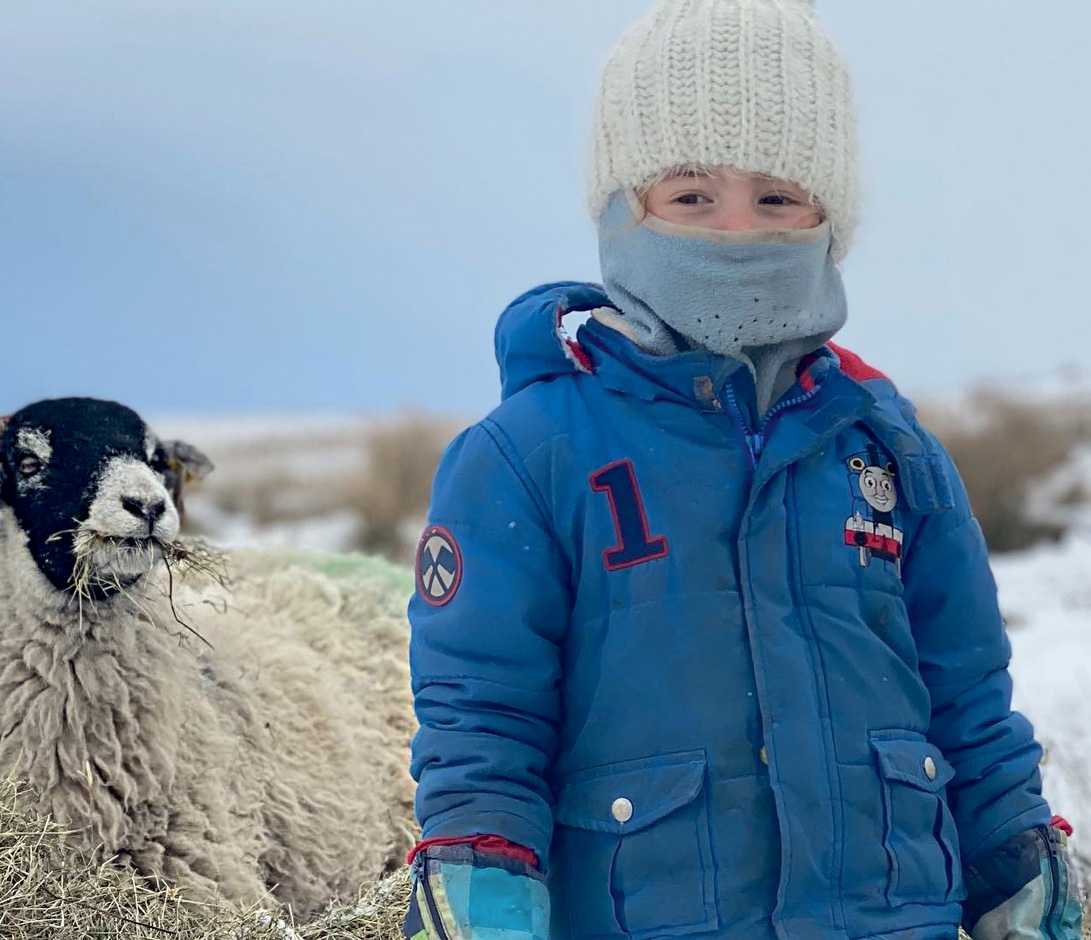
The three smallest children, Clemmy, Annas and Nancy, like to sort out the stables. They are very capable of stuffing haynets and poo-picking. Sidney and Violet see to the calves, mixing up milk bottles or buckets and filling their hay-racks. Miles often lets the sheepdogs out of their kennels for a gallop up to the beck, where they can get a drink. If they have worked with us all day, they do sometimes choose to stay in the kennel, no doubt tired from all the miles covered.
Edith is tasked with bottling the milk from the house cow. I bring her a pail of warm milk and she will first strain it through a stainless-steel sile with a circular dairy pad that fits in the bottom, then decant it into glass screw-top bottles. Sometimes we change tactic, putting the milk into a wide dairy bowl and letting it cool in the fridge. Later we skim off the cream to use in ice cream or in a pudding. After Raven left for university, Edith was determined to take on more responsibility, and now deals with a good many of the indoor chores, too, such as helping to clear away dinner and giving me a hand with sorting through the washing.

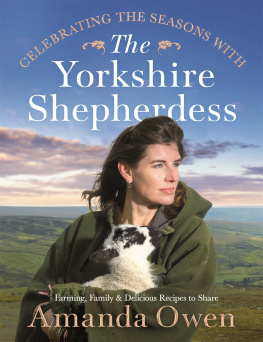
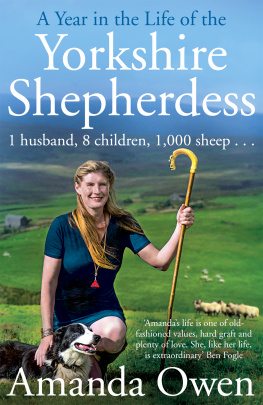
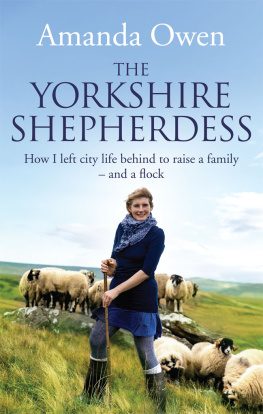








![Amanda Mason [Amanda Mason] - The Wayward Girls](/uploads/posts/book/140005/thumbs/amanda-mason-amanda-mason-the-wayward-girls.jpg)
